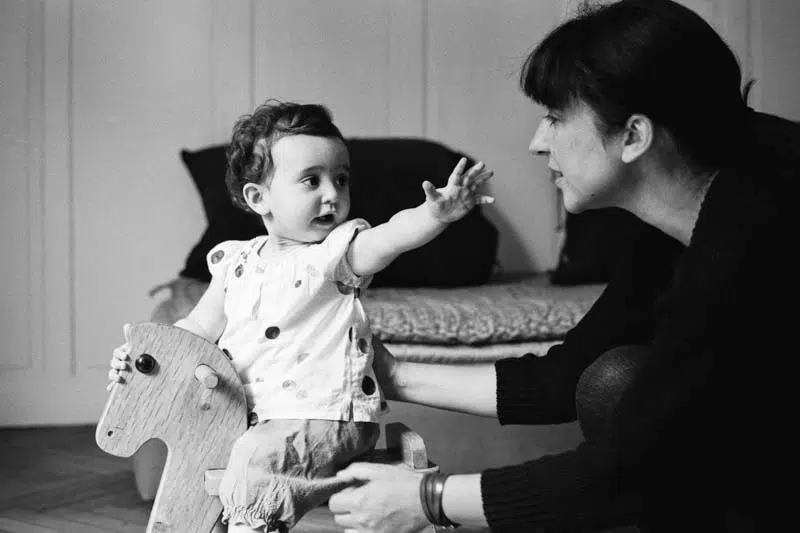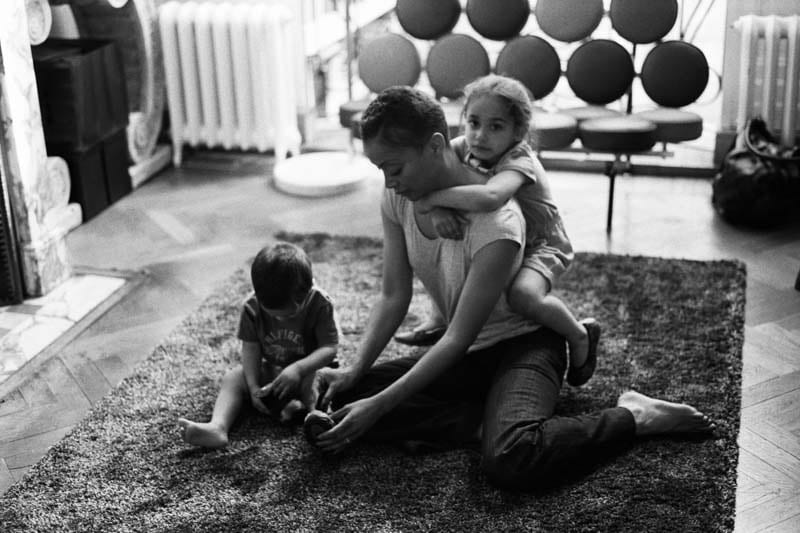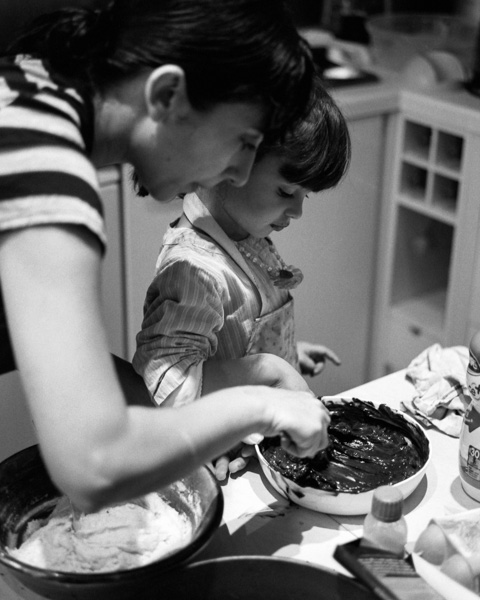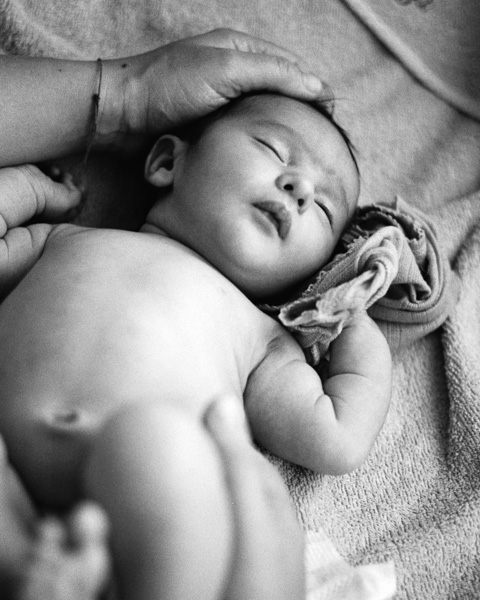Welcome to the village, David! You’ve gone back and forth between Paris and Brussels a few times in your life. Tell us where you started out and how you ended up (back) in Brussels.
I was born in Paris, but my family moved to Brussels when I was only one, so I grew up here. I even started my studies here – to become a vet! – but after realising I’d made a mistake in my choice of career, I moved back to Paris in 1999. And that’s where I met my wife, a life-long Parisian.
Our first daughter was born in Paris, and in 2007, the three of us moved to Brussels. For me of course, it was the second time I was making the journey from Paris to Brussels, but it was a new experience for my wife. Our second daughter was born in Brussels in 2009. We feel very comfortable here, in an international city, where people don’t take themselves too seriously.
From veterinary studies to photography is quite a leap! Where did the interest in photography come from, and when? And how did your interest turn into a career?
My introduction to photography came about quite by chance: one day, my room-mate invited a friend who was studying photography at La Cambre school in Brussels. I knew nothing about photography and seeing his personal work opened a new door that has never closed since. I started to photograph my fellow students compulsively, mainly in black and white.
At the same time, it was becoming clear to me that my veterinary studies were a mistake. I knew I didn’t want to work as a vet, so I stopped my studies and moved to Paris in 1999.
I lived in front of one of the biggest professional photo laboratories of the city, which is how I came to get a job at Magnum Photos [Editor’s note: Magnum Photographers is a co-operative owned and run by its member photographers, who undergo a rigorous process of self-selection in order to become full members.] as an assistant to photographers who had been my personal idols for years. That set me on the path to becoming a professional photographer myself.
It sounds like you’ve always been drawn to taking photos of people. Why do you think that is?
The only topic that interests me is the human being. And photography is the best way I have found to establish contact with others.
For a long time, inspired by the Magnum photographers, I was mainly doing street photography and documentary work in different countries where I went to discover foreign cultures.
My approach is very much documentary-based. I try to capture the essence of a specific moment with as little intervention as possible. I like to highlight what we feel but do not necessarily see at first sight.
I am above all an observer; I don’t have the qualities of a director.
What is it about family photography that you particularly enjoy?
Taking family photos may seem less exotic than street photography or documentaries, but it’s just as exciting. It’s a real privilege to be able to share such intimate and authentic moments with people.
And there’s something incredible about working with children. With them, everything is easier… at least for me.
And then there’s the fact that photographing families makes me feel deeply useful, that I am doing something that matters. Nowadays, we don’t print out photos. Often, we can’t even find them on our phones because we have so many. And I believe this a serious problem that we underestimate.
With digital technology becoming so widespread, whole generations risk being deprived of family souvenirs, and in many ways, deprived of memories. It is therefore almost a mission that I have given myself, to document the life of families in this early 21st century!
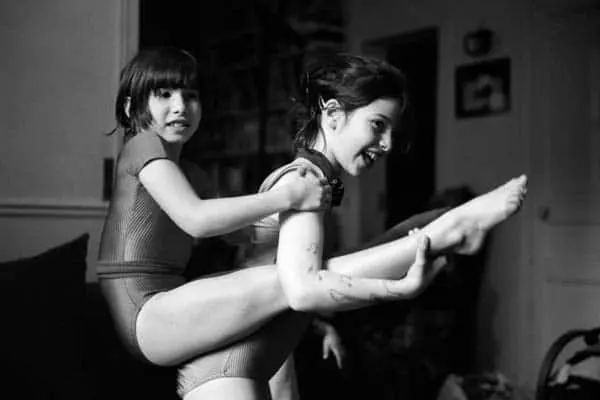
So, in a world of photographic excess, what would you say is the true value of having professional photos taken?
In my mind, there are three main advantages to hiring a professional photographer:
- Choosing consciously: Hiring a professional photographer is choosing to invest in what is most precious: our family, and the memories we build together around it. Yes, the millions of photos we can take with our phones are essentially ‘free’, but somehow this sea of photos makes me think of those all-you-can-eat buffets where, in the end, you feel kind of nauseous. This is also one of the reasons why I prefer film (by nature limited in quantity) to digital. Working with a professional is therefore about consciously choosing the handful of photos that will be precious in our eyes.
- Getting an authentic view of the family: When parents take photos, the father or mother are often absent from the pictures with their children. Because a professional photographer – especially a more documentary-style photographer – is there to observe the family in their own habitat, or a space where they can be authentically themselves, they will take pictures of all the members of the family, including the parents.
- Getting unique prints that can take pride of place in your home: While it’s not difficult for parents to have photos printed, most just don’t do it. Even though they know there’s a risk of them losing their phone, or losing photos on their computer due to a technical issue. The photographer often offers to print the photos, sometimes even on fine art paper. When you think about it, there’s something incredibly precious about having beautiful, carefully chosen prints that can be framed and hung in your home.
For a family who might feel a little nervous about inviting a photographer into their life, how does it work, from the first contact, to the ‘big day’?
Families either typically hear about me through word of word, or find me via my website. A first phone call can already help them understand if we are a good fit, and then we arrange a first meeting.
To photograph a family, I have to introduce myself to them and get to know them. We meet over a cup of tea and we talk about their expectations. That’s usually the occasion to meet all the members of the family and discover their home.
The photo session usually takes place in the family’s home but it can also be outside, or anywhere else that means something to them. The most important thing is that they are in a setting that makes them feel confident, a place where they can be ‘themselves’.
I don’t work with a clock. A photo session usually lasts one to two hours but sometimes it can last longer. No two families are alike and it’s not me who is directing the action. It’s my job to listen to them and follow their rhythm!
And are you often behind the lens at home?
If you ask my children and my wife, they will say “More photos!!?”. I never stop taking pictures of them, even when they think they have messy hair or don’t look their best. They are my favourite models! Capturing those everyday moments, without any particular occasion, that’s something that feels really essential to me.
Photos of myself on the other hand, they are much more rare.
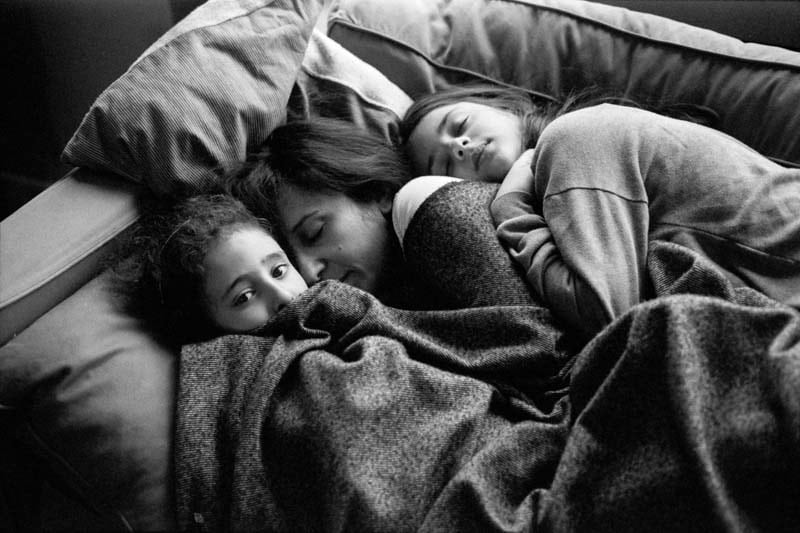
How will you make sure your daughters have access to those photos of themselves as they grow up? Do you create albums? Individual prints? Digital?
Our youngest daughter always wants to look at my archives. She asks me to show her pictures of when she was a child. It’s natural. A simple picture will bring back a multitude of memories and anecdotes. It’s so precious!
As for our family photos, I know that the surest way to transmit them to future generations is to print them. Single prints or albums, I’m not sure what I’ll do to leave their legacy to our daughters. What I do know is that I will not pass on digital files to our children.
Digital is essential in our daily lives for instant sharing but is very fragile over time. My films are all archived and preciously preserved in ‘museum grade’ sleeves. When the time comes, I will make a selection of photos that tell the story of the years spent with their parents and make prints that I will pass on to them.
Are your daughters showing any interest in photography themselves as an art?
Our daughters are very interested in pictures, and in their image in general. As teenagers are. They have their phones and take selfies and pictures of their friends, compulsively! But (at the moment) they’re not interested in photography as an artistic tool.
Our youngest daughter was recently given a film camera. She’s very creative, and I can’t wait to see how she gets on with it. I will of course, be there if she needs advice (although I think she’d rather ask anyone than her dad!).
We’ve talked about your journey into, and adventures in photography, but less about your adventures in parenthood. Did you always see yourself having children? And has parenthood come naturally to you?
I was always very eager to have children. Is it because I come from a large family (I have four sisters)? Is it because I have always had a special relationship with children? Perhaps both, along with a series of other factors.
Becoming a father has never intimidated me, in a way it has even liberated me! Having a baby allows you to become a child yourself again. You go back to playing on all fours, you sing all day long, you read all the children’s books, you watch cartoons.
For my wife and me, the path was very natural and I don’t regret that we’ve done things our own way. If I had to give one piece of advice, it would be this: don’t listen too much to others. Neither the killjoys who tell you that once you’re a parent you won’t be able to do anything anymore and will be too tired, nor the enthusiasts like me!
We are all different, you have to listen to your partner and yourself. Trust yourself and… go for it!
Being a photographer probably means that you don’t keep a nine-to-five schedule. How do you manage to balance work and family? Do you have any advice for other parents?
My wife is a fashion designer and I am a photographer. We are both self-employed and our daughters have always known their parents working evenings, weekends, and holidays. It’s not an easy situation for families and it requires a lot of discipline.
My advice? The first one: know how to say NO! Say no to clients who put pressure on deadlines and say no to yourself when you consider working at the weekend instead of taking advantage of the arrival of spring to go for a walk with your family.
The second is to find an activity that can act as a buffer between your professional activity and your family life, to protect both. In my case, it’s Argentine tango, which I’ve been dancing with passion for years. It is my ‘ME’ time, my balance!
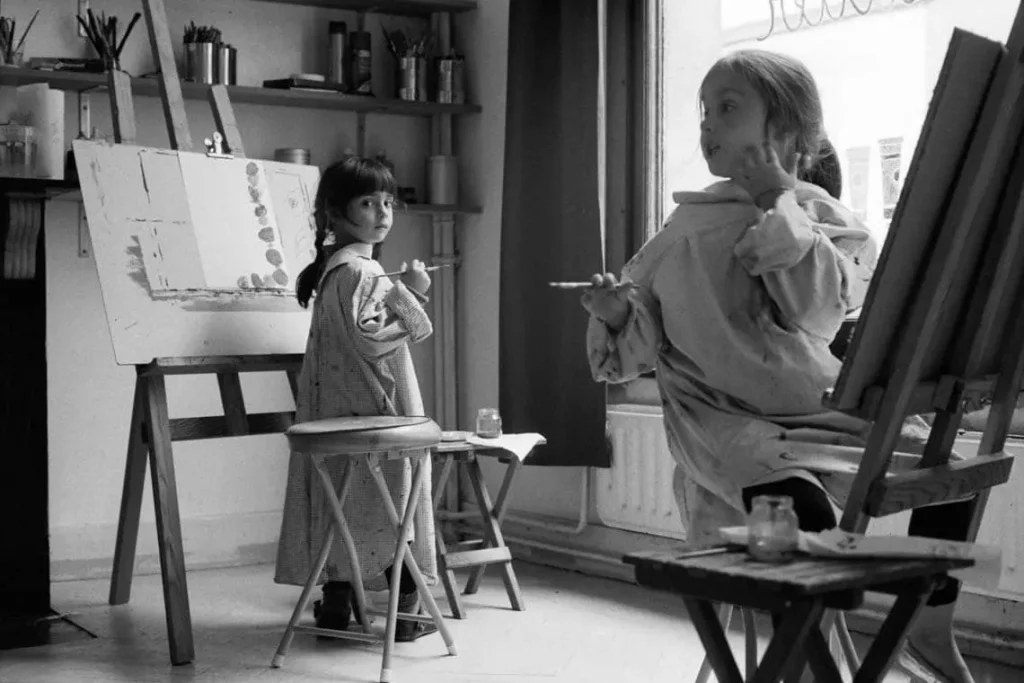
All images © David Sdika
David Sdika is based in Ixelles, Brussels.
Visit www.davidsdika.com for more information about David’s services and to see a selection of his work.
You can also follow David on Facebook and Instagram.
Contact:
+32(0)497 94 34 74
hello@davidsdika.com



